Land and Agricultural Related Alternatives
The alternatives situated within this space mainly consist of ‘communities’ wherein the main focus is tied to regeneration of Nature, the land, and sustainable systems which support both humans and non-humans alike. Many of these perspectives have been inspired by or are situated within Indigenous knowledge systems.
Bioregionalism
Bioregionalism is a framework coined in the 1970s which attempts to address the inequitable distribution of resources and the strain that the current economic system places on the environment and people (as human capital). It aims to redress the idea of territory by suggesting that populations can be grouped into different bioregions ‘bioregion is short for ‘bio-cultural region’ rather than man-made political borders, and that land or a bioregion is then defined by a geographic region that is distinct from another. It also further expands this notion of land by incorporating the notion of people being grouped together within and part of bioregions based on their attachment to the land, which they call home, rather than race, ethnicity or culture. Bioregionalism appears to be a small conversation online, with the conversation mainly occurring in Spain, the US, India and Canada. The narrative space is mainly composed of NGOs, policymakers, activists and Indigenous peoples.
An example of this is the Guianan savanna, which cannot be separated from the adjacent Guianan forests in the east of Venezuela and north of Brazil. Another example of a bioregion that does not cross national geographic borders but does overlap state lines is the Ozarks which is also referred to as the Ozarks Plateau, this consists of parts of Missouri, Arkansas, the corner of Oklahoma and Kansas.
Initiatives

Planet Drum Foundation
This Planet Drum foundation was formed in 1973 in San Francisco, California utilizing a grassroots strategy to ecology that highlights sustainability, community self-determination and regional self-reliance. Planet Drum in association with community activists and ecologists developed the term bioregion. Via the various projects, publications, speakers and workshops, Planet Drum assists in developing and establishing new bioregional organizations and inspires local peoples and organizations to adapt to sustainable ways of living within the natural boundaries of bioregionalism.
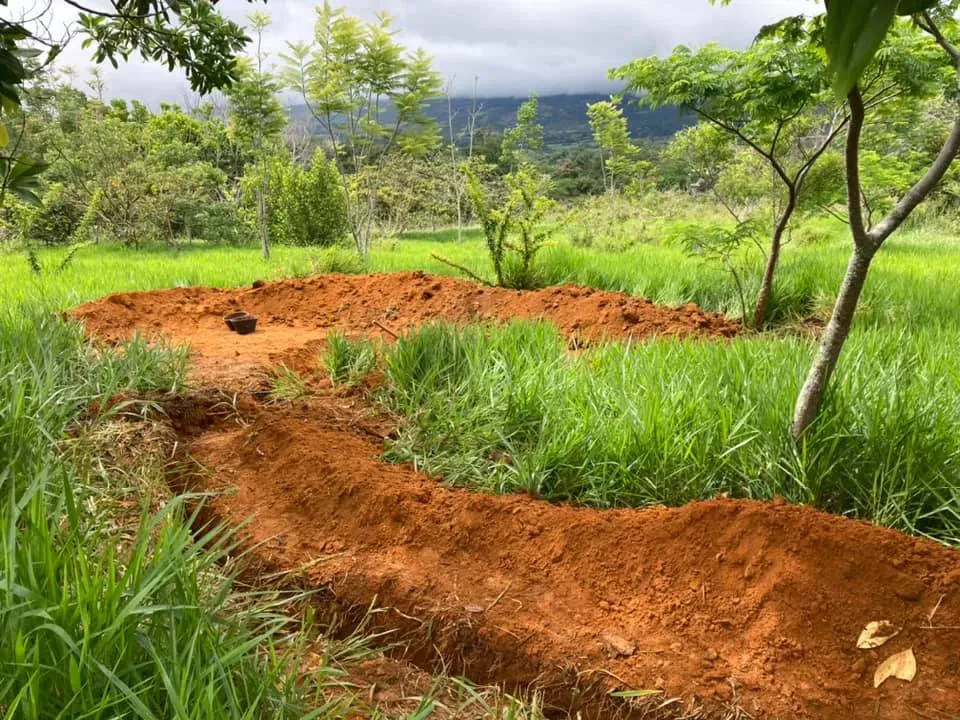
Earth Regenerators
This a collective who have come together under the mission to heal the earth through bioregionalism. They are an online community made up of people from all around the world. It was started as a study group for Joe Brewer’s 2019 book, The Design Pathway for Regenerating Earth. Joe Brewer has gone on to co-found and lead the Design School for Regenerating Earth, wherein they are rebirthing planetary networks for bioregions to live out the Design Pathways in the world. The Earth Regenerators believe that the pathways for regeneration can be found in a spiritual and land-based revival of Indigenous lifeways in combination with the scientific knowledge about human behavior, cultural evolution, and the dynamic earth in order to bring about regeneration.

Earth Equity Network
The Earth Equity Network is a collaborative effort between the Coalition of Everyone (CoE) and Earth Equity, with the mutual goal of guiding organizations in leading, designing, and crafting with respect to nature brought us together. The Earth Equity Network promotes a mutual exchange between Nature and businesses by adapting Earth Equity (EE) and allocating a portion of profits to Earth’s Bank Account (EBA). A Bioregional Regeneration Fund, aimed at bridging gaps between companies and Nature, can be established anywhere, providing Nature with representation, financial agency, and increased legal autonomy in your community.
Founded in 2019, the Coalition of Everyone is an Australian non-profit organization which endeavors to rebuild democracy for the betterment of all. Earth Equity is a unique business framework influenced by Aotearoa / New Zealand’s environmental personhood initiatives, notably the Te Awa Tupua Act of 2017, which recognized the Whanganui River as a legal entity. They aspire to transition from a focus on profit to decisions centered on life and well-being.
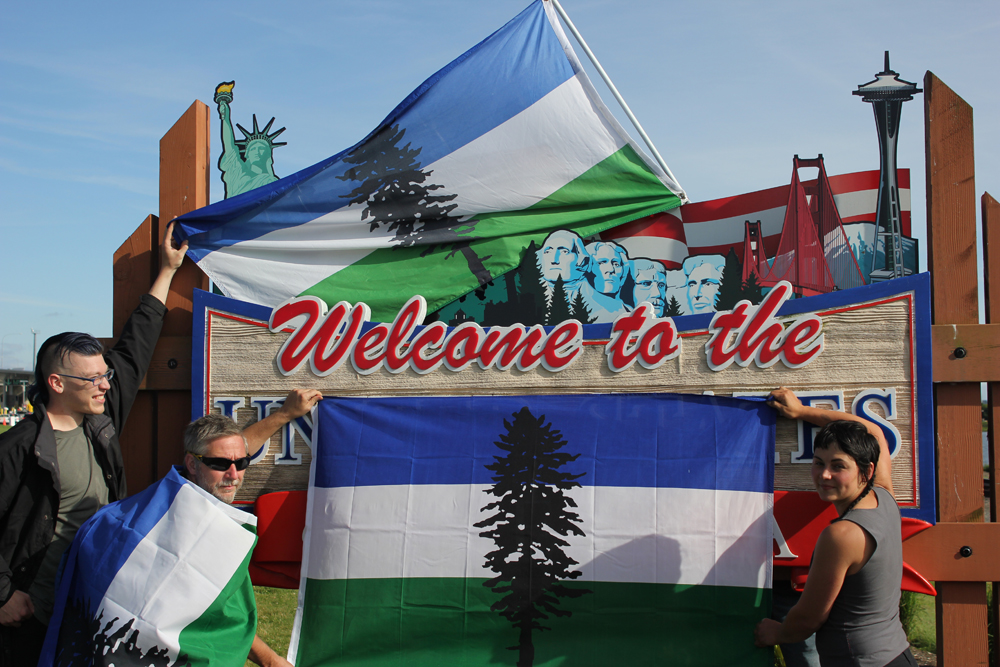
Cascadia Bioregionalism
Cascadia is a bioregion that is made up of British Columbia, Washington, Oregon, Idaho and parts of SouthEast Alaska and Northern California, as defined through the watersheds of the Columbia, Fraser and Snake watersheds. The term Cascadia was first mentioned in 1981 by Seattle University professor Davd Mcloskey as a more fitting descriptor for their growing regional identity. It was officially adopted by an array of policy planners, First Nations peoples, and community organizers at the first Cascadia Bioregional Congress in 1986. The Cascadia movement is made up of individuals who are tethered by their love of the region, their desire to protect the environment and things of importance and all living things situated in the region. The movement garnered a better understanding of the bioregion, adaptation of technologically suitable technologies and policies, provision of funding for community projects, education about bioregionalism and aid in establishing centers focused on watersheds. These centers aim to identify the sustainable limits and restoration strategies for each watershed and the surrounding bioregions that we inhabit.
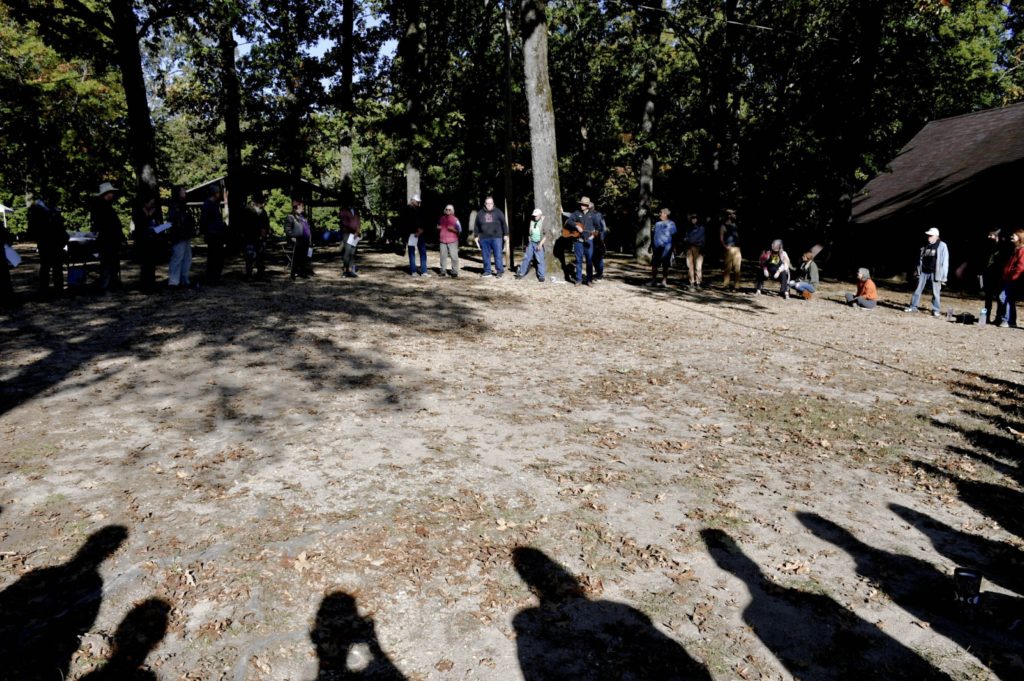
Ozark Area Community Congress (OACC)
The OACC was established in 1980 by a collective of ecology-minded folk who would convene to discuss and celebrate all matters pertaining to the Ozarks. It was initially founded as a soundboard for Ozarkians who were considered engaging in “alternative” fields and to encourage the adoption of the bioregional movement. The OACC was the first bioregional congress ever established. Initially, the OACC serves to provide support to create a regionally-oriented culture in which resolutions aimed at inspiring Ozark inhabitants to develop a culture centered on the region. These resolutions, based on environmental values, were designed to encourage economic and land management approaches that could support future generations, including our offspring and theirs. The OACC is considered an ecological network wherein members work in their respective fields but convene yearly to promote their ideas. Due to the nature of congress, no singular person represents the OACC.
The Great Lakes Commons
The Great Lakes Commons are an ever-expanding and growing group of people, organizations and movements from the Great Lakes bioregion who care for the wellbeing of these water bodies. The Great Lakes Commons was initialized as a project by On the Commons. Numerous organizations and people from the US, Canada, and Indigenous peoples who offered initial input and governance.
The Great Lakes Commons is a diverse group, encompassing environmentalists, scientists, hobbyists, educators, city-dwellers, countryside residents, both Indigenous and non-Indigenous peoples, spiritual believers, artists, agriculturists, and health enthusiasts — passionate about the Lakes’ prosperity for the upcoming generations. Their collective goal is to ensure a flourishing future for the Lakes, and dedication to the enduring transformation in how to care for and govern the Great Lakes. The leadership of the Great Lakes Commons is a unique blend of individuals from various nationalities, locations, heritages, and customs.
Community Land Trusts
Community Land Trusts (CLTs) are nonprofit organizations made up of community members. They serve as a way in which communities are able to hold land, buildings, or other assets or services that are important on behalf of a place-based community. Examples of projects that Community Land Trusts have undertaken include the renovation or building of homes, the taking over and running of local pubs and shops, the creation of recreational or play areas and nature walks, and building community-accessible work spaces. Particularly of note is the role of Indigenous and Black-owned Community Land Trusts, which are paving the way to create land reparations within marginalized communities. Community Land Trusts appears to be a large and growing conversation online, largely situated in the Global North in Canada, the US and the UK. Actors talking about CLTs are mainly activists, NGOs, urban planners, news sites and policymakers.
Initiatives
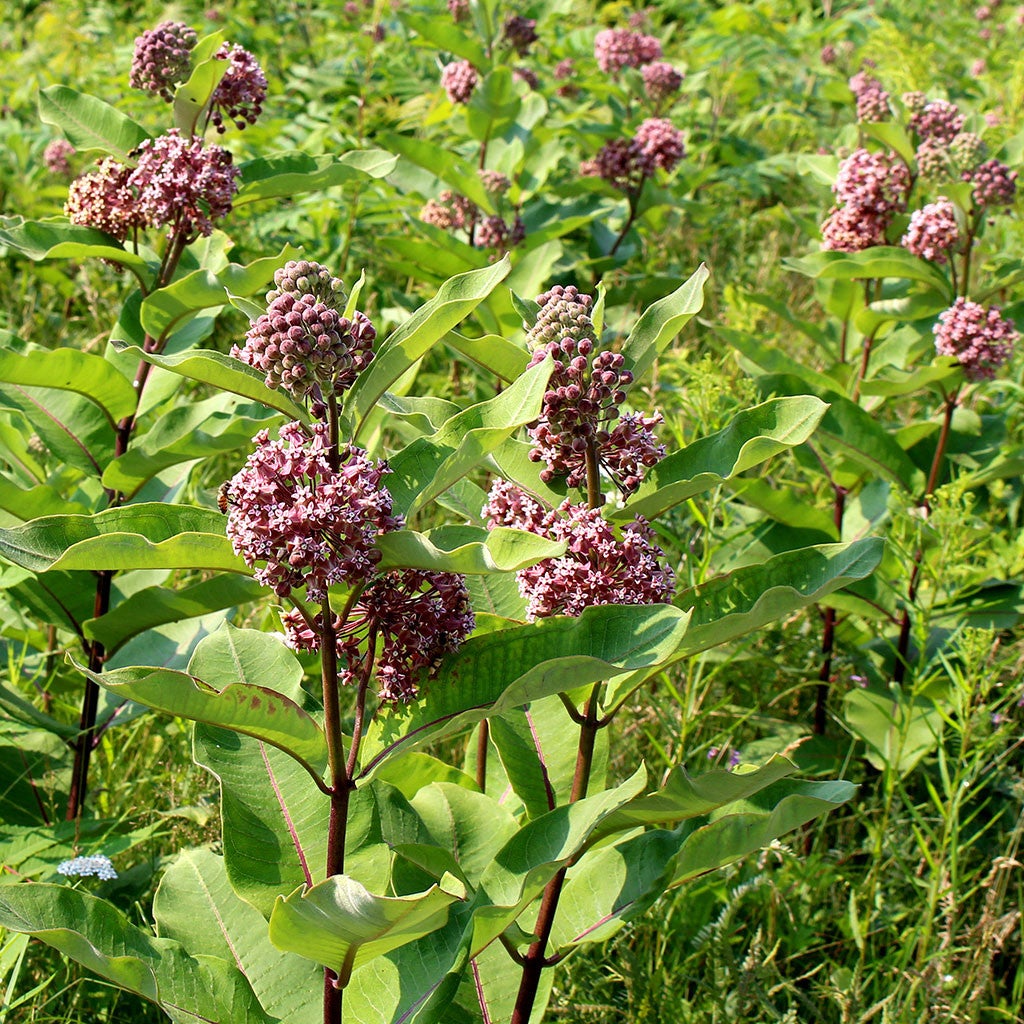
Wild Seed Project
Wild Seed Project is located in the ancestral Wabanaki territory, now called Maine. Wild Seed recognizes the sovereignty of the tribes of the Wabanaki, the People of the Dawn—the Abenaki, Houlton Band of Maliseet Indians, Mi’kmaq Nation, Penobscot Nation and Passamaquoddy Tribe. They champion their persistent endeavors for justice, self-determination and decolonization. Wild Seed Project promotes the essential value of native plants and empowers everyone to reintroduce biodiversity in their local areas. They provide training and resources for community members, government representatives, landowners, and various organizations – ranging from farmers to land trusts – to collaboratively reintroduce native vegetation. This effort enhances habitats for wildlife, bolsters biodiversity, and strengthens adaptability to climate changes. Their primary initiatives consist of seed stewardship, educational resources, school programs, applied ecology and publications.
Soul Fire Farm
Soul Fire Farm is an “Afro-Indigenous focused community farm committed to uprooting racism and seeding sovereignty in the food system.”
The mission of Soul Fire Farm is to end food apartheid through the distribution of food as well as bringing communities together in order to share skills on sustainable agriculture, building through natural materials, spiritual activism, environmental justice and health. Their food sovereignty programs reach over 50,000 people a year. This includes farming training for Black and Brown growers, reparations and land return initiatives for northeast farmers, food justice workshops for urban youth, home gardens for city dwellers living under food apartheid, doorstep harvest delivery for food insecure households and systems and policy education for public decision-makers.
The North East Farmers of Color Land Trust (NEFOC)
The NEFOC Network is an informal coalition of Black, Latinx, Indigenous and Asian farmers established in the Northeast region (New England, Connecticut, Maine, Massachusetts, New Hampshire, Rhode Island, Vermont, Middle Atlantic, New Jersey, New York, Pennsylvania.) Within the network there are 21 founding member farms and a total of 515 farmers, land stewards, and earthworkers.
The goals of the network are:
- To break the isolation of being farmers of color in the Northeast by building relationships of mutual respect and joy, the foundation of all other movement work.
- To share skills, resources, and time with one other through mutual aid. To build collaborative projects and initiatives.
- To coordinate our policy demands and catalyze reparations for Black-Indigenous-POC farmers and land stewards.
The NEFOC land trust serves to provide the accessibility of land to NEFOC members as a direct response to the biggest hindrance of food equality.
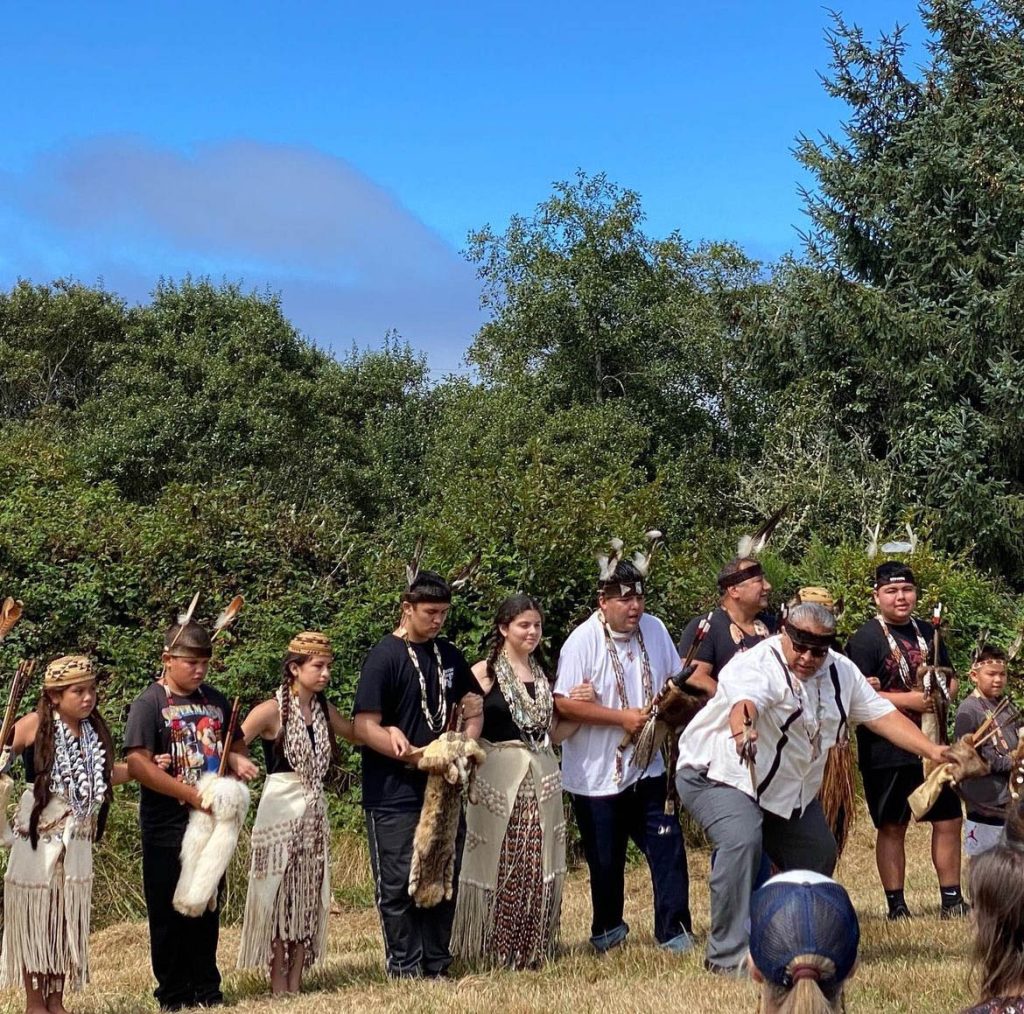
Dishgamu Humboldt Community Land Trust
Dishgamu Humboldt Community Land Trust is the Wiyot tribe’s Community Land Trust, named after the Soulatluk word for love. For over a century, Wiyot people have worked to remain in a reciprocal relationship with their unceded ancestral territory – through private land purchases, legal action, and more recently, voluntary land returns Through this work, the Wiyot Tribe has exemplified how native and non-native peoples can exist in relationship to the land and to one another. The Dishagamu Humboldt Trust’s mission is to facilitate the return of Wiyot ancestral lands to Wiyot stewardship, placing the land in trust for the creation of affordable housing, development of the workforce, and cultural and environmental restoration.
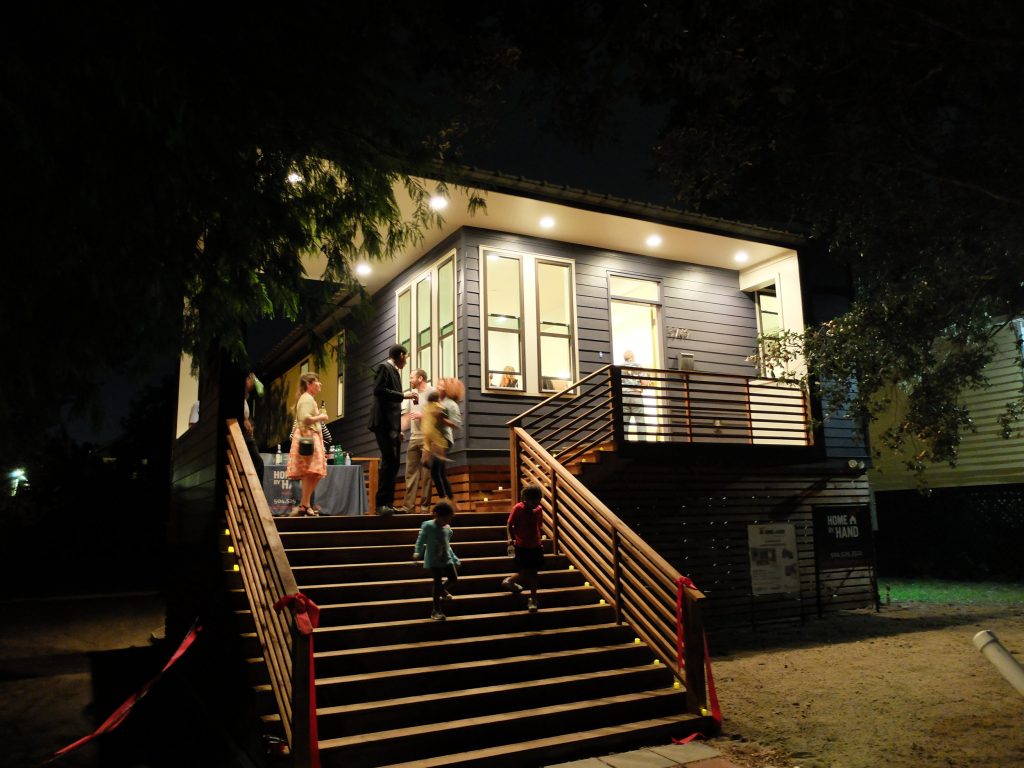
People’s Housing+
People’s Housing + is a coalition of various CLTs working to create affordable and safe housing opportunities for low to moderate income families in New Orleans. People’s Housing have a collective 40 years of experience across their merging partners. They have provided more than 200 housing units between the three merging organizations (Home By Hand, Crescent City Community Land Trust, and Tulane Canal Neighborhood Development Corporation.) and provide financial wellness and homeowners counseling sessions to clients.
Stewardship is a critical component to the work done by People’s Housing+ as they believe that it is the foundation for ensuring that historically marginalized communities have access to information, awareness and accessibility to increase intergenerational wealth, earning higher incomes and accumulation of wealth.
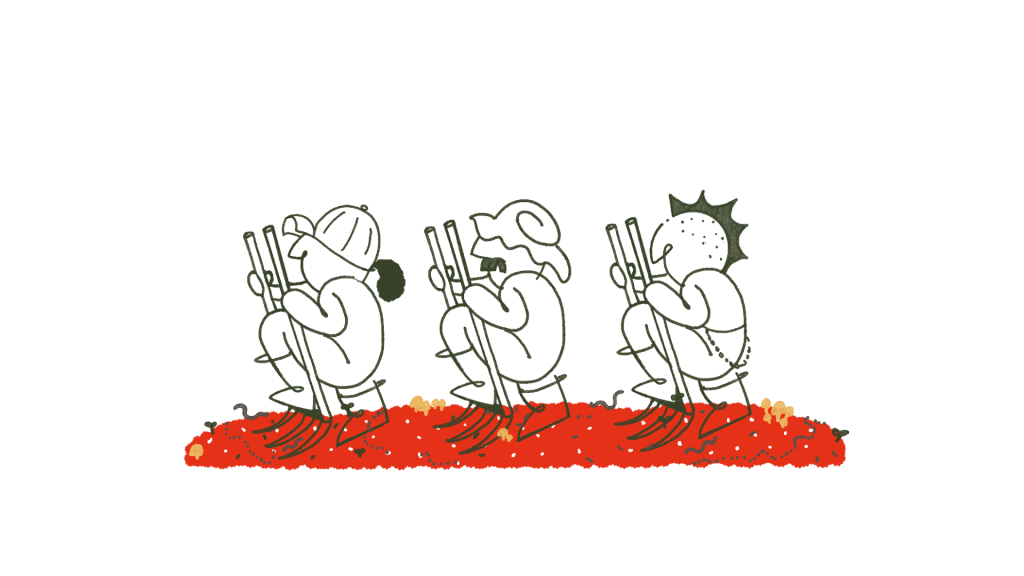
Fideicomiso de Tierras Comunitarias para la Agricutura Sostenible (FiTiCAS)
FiTiCAS was established in 2019 as the first trust of its kind in Puerto Rico, to guarantee ongoing access to cultivable lands for the rural population of Puerto Rico. Its aim is to promote food sovereignty for the island’s residents by endorsing sustainable organic farming practices. FiTiCAS aims to support the growth of sustainable farming communities and networks in Puerto Rico. They do this by ensuring access to essential resources like land, housing, and communal spaces for both economic and cultural activities, all of which promote food self-sufficiency.
Fideicomiso de la Tierra Caño Martín Peña
The Caño Martín Peña Land Trust has been in service of seven communities (which were originally informal settlements) surrounding Caño Martín Peña, to manage and direct the development of approximately 200 acres of land in the urban area of Puerto Rico, San Juan without risking the displacement of the residents. 80 years ago the lands of Caño Martín Peña were considered rustic lands on the outskirts of the city. However, the growth of the city in San Juan has resulted in higher risk of gentrification and displacement of the citizens of Caño Martín Peña. The land trust also led to the environmental recovery of the Caño Martín Peña ecosystem and the dredging of the body of water which has resulted in the avoidance of frequent flooding and contamination of the water which affects residents. Affordable housing is maintained for low-income families and individuals and creates beneficial individual and collective resources procured from the land, which ensures wealth and land inheritance for future generations.
Bomazeen Land Trust
The Bomazeen Land Trust serves to allow the Abenaki/Wabanaki people to restore and recommence land stewardship for the land and water with spiritual, ecological and historical significance to the Abenaki/Wabanaki people. One of the primary goals of the Bomazeen land trust is rematriation – Indigenous womxn led work to restore the sacred relationship between Indigenous peoples and their ancestral land. They also aim to achieve the healing of ancestral Wabanaki practices and unceasing protection thereof. The Bomazeen land trust wishes to empower the Wabanaki and BIPOC communities with land access and traditional skills and knowledge of the ancestors through educational programs. The land trust provides spaces for people to engage in cultural practices including ceremony, food sovereignty, protection of sacred sites and protection of other-than-human relatives.
Sogorea Te’ Land Trust
The Sogorea Te’ Land is an Indigenous womxn-led urban land trust in the San Francisco Bay area, which promotes the return of land to Indigenous peoples. Sogorea uses the practices of rematriation, cultural revitalization, and land restoration to call on Natives and non-Natives to heal and deconstruct the legacy of colonization, genocide and patriarchy. They envision a future in the Bay Area in which the Ohlone language and ceremony are vibrant elements of the cultural backdrop and “where intertribal Indigenous communities have affordable housing, social services, cultural centers and land to live, work and play on.”
Agroecology
Agroecology is a holistic agricultural approach which comes from Latin American farmers and Indigenous communities fighting for a decolonial and anti-capitalist model of food production. It has now entered the policy-making world in the Global North. The Indigenous and peasant practices formed from the close association between communities’ livelihoods and the local environments. The core idea behind agroecology is that humans can form transformative relationships with nature and with the land. Agroecology is a massive online conversation mainly occurring in the United States, India, Kenya, Uganda,and the UK. It consists mainly of NGOs, activists, policymakers and researchers.
Initiatives
Agroecology Coalition
The Agroecology Coalition serves as a vehicle for food system transformation through agroecology guided by the 13 principles of agroecology (as defined by the High Level Panel of Experts of the Committee of World Food Security). These principles apply to all forms of sustainable agriculture and food production systems including crops, livestock, and pastoral systems, agroforestry, fisheries and aquaculture.
The principles also apply to food processing, commercialisation and consumption.
The application of the principles further enhances gender equality, attracting the youth to agriculture, and the creation of dignified incomes and living conditions, as well as contributing to healthy diets. The Coalition supports food system transformation through agroecology and the implementation of country pathways in three areas:
- Facilitating co-creation and exchange of knowledge
- Promoting increased investments in agroecology
- Seeking political engagement and increased commitment to the agroecological transformation
A Growing Culture
A Growing Culture is an organization that promotes the reclamation of farmer autonomy and agroecological innovation. They offer a holistic approach to the support of farmers in marginalized communities. Through a partnership with the Library for Food Sovereignty, farmers are playing a role in documenting and exchange of information and agroecological practices. A Growing Culture is home to a number of projects around food systems such as ‘Hunger for Justice’ a storytelling series centring justice in food systems. The ‘Seed is Power’ project which is a fund created to ensure seed sovereignty which serves to disrupt traditional forms of philanthropy through the creation of a reciprocal system which aims to redistribute power, construction of equality and the creation of solidarity amongst ‘seed savers’. The ‘Peasant and Indigenous Press’ project is a collection of bi-monthly forums, media workshops and a monthly dispatch and journalist fellowship program aimed at connecting Indigenous and peasant communities with media through the development of a more holistic and nuanced storytelling system.
Associação Brasileira de Agroecologia (Brésil)
Associação Brasileira de Agroecologia (ABA) brings together Brazilian students and professionals from a wide variety of backgrounds. The organization was founded to encourage the production of knowledge for the agroecology movement. Through the use of issue-specific working groups, ABA provides space for its members to share knowledge and engage in advocacy, research, and education.
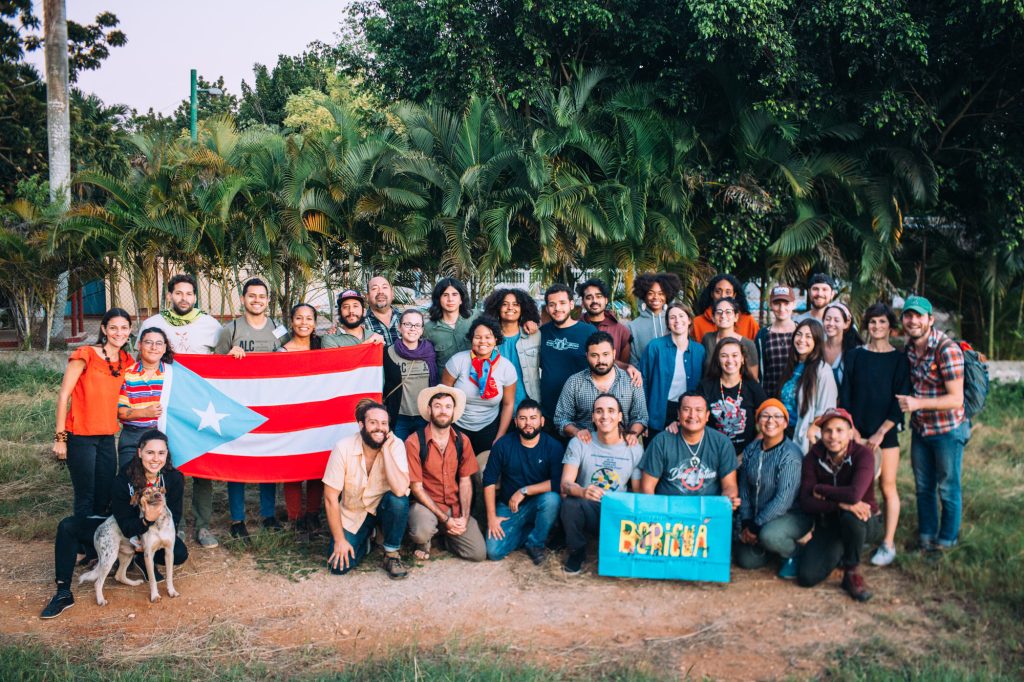
Cuba-US Agroecology Network (CUSAN) (Cuba and the United States)
Associação Brasileira de Agroecologia (ABA) brings together Brazilian students and professionals from a wide variety of backgrounds. The organization was founded to encourage the production of knowledge for the agroecology movement. Through the use of issue-specific working groups, ABA provides space for its members to share knowledge and engage in advocacy, research, and education.
Food Sovereignty
Food sovereignty was first formally proposed by La Via Campesina, the global movement of peasants and rural people in 1996. It is a system in which those who produce, distribute and consume food are also those who control the mechanisms and policies of food production. This contrasts with the current extractivist system in which corporations and markets control the global food system. It is tied to land rights and Indigenous rights as colonization and land dispossession has directly impacted Indigenous peoples’ access to traditional diet and food systems. This has resulted in a large array of health issues within Native populations such as the increase of heart disease, diabetes, obesity, malnutrition, etc. Food sovereignty places ecologically sound agricultural practices at the forefront, and reinforces resilience and adaptation. It builds on skills and Indigenous and local knowledge of food providers and organizations to manage food production and distribution. It also serves as a way in which Indigenous populations may reconnect with the land, traditions and their heritage on their own terms. Food sovereignty appears to be quite a sizable conversation online, with the location of conversation being quite global with the most active conversations in the United States, Kenya, Canada, Italy and the UK. The main actors here are NGOs, activists, Indigenous peoples, and the media.
Initiatives
La Via Campesina
La Via Campesina, founded in 1993, is an International movement of peasants, smallholding farmers, pastoralists, fishers, migrant farm workers, landless and displaced peoples and Indigenous people in support of peasant agriculture for food sovereignty.
In order to achieve food sovereignty La Via Campesina mobilizes and advocates for agrarian reform in peasant territories and provides training of agroecological. This global coalition is also a platform for its members. The coalition also serves as a platform for its members to carry out joint campaigns and solidarity actions for the defense of land, water, seeds, and forests.
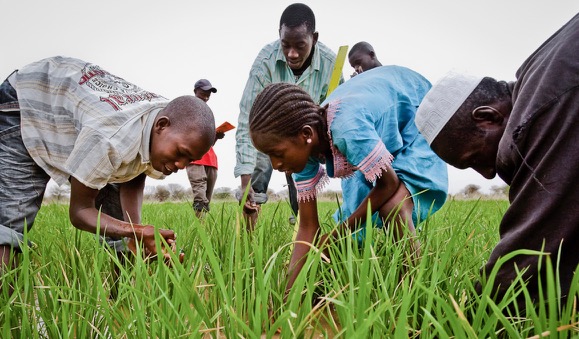
Alliance for Food Sovereignty in Africa (AFSA)
The AFSA is a coalition of various civil society actors which are part of the struggle for food sovereignty and agroecology in Africa. It was first formed in 2008 and launched at the UN Framework Convention on Climate Change (UNFCCC) Conference of Parties 17 (COP 17) in Durban, South Africa in December 2011. The coalition consists of African farmers’ organizations, African NGO networks, and International organizations which support the stance of AFSA. Its network consists of 30 members. The core purpose of AFSA is to influence policies and provide African solutions for food sovereignty.
Navdanya International (India)
Navdanya International was created to defend seed and food sovereignty around the world. By promoting seed conservation, Navdanya International is able to protect biodiversity and encourage sustainable practices. Over the past 30 years, Navdanya International has conducted research on biodiversity-based agroecological farming to highlight ways agroecology can increase nutrition and farmer income while maintaining soil health and conserving water.
National Black Food and Justice Alliance (NBFJA)
NBFJA is a collective of Black-led organizations striving for the growth and the progress of Black leadership, growing Black self-determination, Black institution building and organizing for food sovereignty and land justice. The NBFJA aims to do this by engaging in expansive coalition organizing for food and land, boosting the prominence of Black-led narratives and work and strengthening the Black-led visions for just and sustainable communities. The NBFJA’s work centers around Black food sovereignty, land and self-determining food economies through the lens of healing, organizing and resisting anti-Blackness.
Planting Justice
Planting Justice has been in existence since 2009, building over 550 edible permaculture gardens, in the San Francisco Bay area. Planting Justice works to combat the institutional inequality that stems from the dominant industrialized food system. This includes addressing the systemic exploitation of food system workers, the lack of access to healthy produce, and the cultural over-reliance on processed food that is harmful to our bodies and our environment. Planting Justice also creates green jobs with fair wages and benefits through the creation of a sustainable food system. Planet Justice believes that investing in food workers leads to the revitalization of the local economy, increasing access to nourishing food and meaningful employment.
Regenerative Agriculture
Regenerative agriculture which has grown in recent years is a conservation and rehabilitation approach to farm management, ranching and food systems, which works with nature rather than against it, forming carbon loops rather than carbon emissions. Despite its recent popularity, regenerative agriculture is an ancient practice rooted in Indigenous systems. It focuses on topsoil rehabilitation, stimulating the microbiology, increasing biodiversity and improving the water cycle. It is a very large conversation on social media and growing it is largely present in the Global North, with the most active conversation in the US, Canada and the UK. The main actors here appear to be civil society actors, policy makers, activists and NGOs.
Initiatives
Rainforest Alliance
The Rainforest Alliance is a coalition spanning 70 countries, and includes farmer and forest communities, organizations, governments, and civil society. They aim to protect rainforests and biodiversity as well as tackle climate justice and promote rights and improve the livelihoods of rural people. Rainforest Alliance has four areas of intervention with which they engage: certification, landscape management, advocacy and supply chain services. The Rainforest Alliance partners with Indigenous populations in a bid to learn from and collaborate with them.
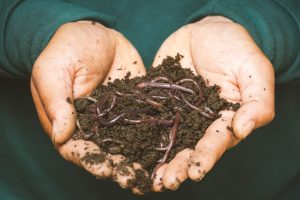
Kiss The Ground
Kiss The Ground is a Californian based nonprofit organization working towards land regeneration and the reversal of climate change through the rejuvenation of healthy soil. Kiss The Ground has created an educational curriculum, campaigns and media to bring attention and encourage people to purchase foods that support healthy soils and a balanced climate. The organization works with climate scientists, farmers, teachers, students, NGOs and policymakers to advocate for regenerative agriculture and help encourage brands and businesses to develop more sustainable supply chains Internationally. They also operate a community garden in Venice, California which is used to demonstrate permaculture to urban youth.
La Delia Verde
La Delia Verde is a regenerative agricultural farm located in Pampa Húmeda in the Province of Buenos Aires, Argentina. Their focus is largely on soil health and the restoration of biodiversity, with aims to mitigate the effects of the climate crisis. In order to enhance the soil health, La Deliva Verde are reducing the use of synthetic pesticides from season to season and have already discarded a list of agrochemicals used in the farm. They also alternate plantings of multispecies cover crops and regular grain commodity crops, following the concept of “living roots all year round”. They hope that through their efforts they can encourage other farms to adapt regenerative principles.
Aranya Agricultural Alternatives
Aranya Agricultural Alternatives organizes and strengthens rural farming communities in India in order to achieve food and nutrition security through permaculture farming practices. The organization has been in existence for over 30 years. They are committed to the philosophy of natural agricultural practices with a focus on forest farming to take up production without causing destruction to the earth. Their philosophy is based on the three ethics of Permaculture – Earth Care, People Care and Fair Share. ‘Aranya’is a Sanskrit word, which means Forest. Ancient Indian mythology considered the forest as the home for all life forms. The forest is defined as a sustainable energy generating system, and is a vital ecosystem maintaining ecological balance .ARANYA (The Forest) is also the source and guiding principle of agriculture. It is a self-regulating process, with abilities to sustain the present and the future. Therefore the organization was christened ARANYA AGRICULTURE ALTERNATIVES (ARANYA) to encapsulate the regeneration philosophy of age old Indian nature tradition.
Urban Permaculture
Permaculture is a scientific and artistic method for designing human settlements to meet humanity’s basic needs (healthy food, clean water, shelter, energy, and community). It works on the premise that through mimicry and working with Nature, people can plan for long-term abundance, and a more ecologically sustainable habitat for all life, from microscopic organisms to the more-than-human. Permaculture systems produce more energy than it consumes, creates soil and forests rather than just conserving them, produces most regional needs, recycle and produce nutrients, prevent energy from leaving before meeting the basic needs of the system. Permaculture is currently a large conversation which is mainly located in the Global North, particularly the US, Canada, the UK and Russia. The main actors here are academics, NGOs, activists, and Indigenous peoples.
Initiatives
Favela da Paz
Favela da Paz (“slum of peace”) is a project led by Claudio Miranda and situated in the Jardim Ângela; a slum in São Paulo, Brazil, considered to be one of the most brutal neighborhoods in the world. Favela da Paz is a cultural project providing education in music, media production, self-sufficiency and more. Today, Favela da Paz is an example for urban sustainability where local people produce food and energy and coexist in communities of solidarity. Favela da Paz has received recognition for their work on: urban permaculture, renewable energy solutions (e.g. solar and biogas), building community, reconciliation work in a crisis situation and peace music.
The Syuxtun Collective
The Syuxtun Collective is named after the original village that Santa Barbara is based in. The word Syuxtun, Cordero-Lamb tells me, literally means “it forks.” The members of the Syuxtun Collective are revisiting Indigenous wisdoms of harvesting and preparing plant medicine in participation with nature. The Syuxtun Plant Medicine Collective, is made up of members of the Coastal Band of the Chumash Nation from Santa Barbara, and pioneered, among others, by ethnobotanist and herbalist Julie Cordero-Lamb, exemplify this subject-subject relational co-existence with our plant allies.

